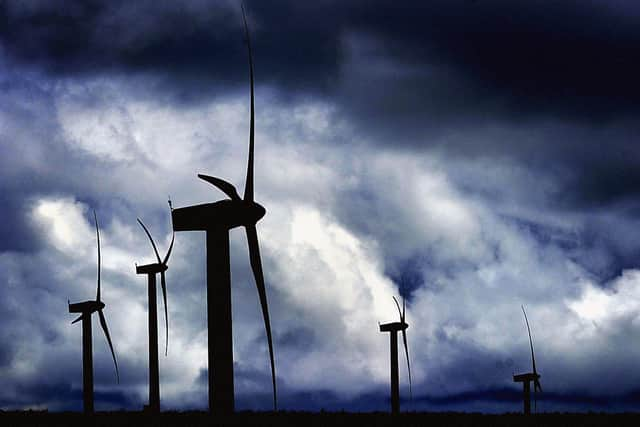Onshore wind policy highlights energy security failings - The Yorkshire Post says
The Government has failed to put in place an infrastructure that would see the country make a meaningful move away from fossil fuels and not rely on the whims of dictators sitting on gas and oil reserves.
The lack of clarity is summed up perfectly by the Government’s about turn on onshore wind farms. Despite the Government planning to now relax restrictions, it is being warned by onshore wind farm experts that won’t be enough to pave the way for a wave of new turbines. Companies feel like they just “can’t take the risk” following a de facto ban in 2015.
Advertisement
Hide AdAdvertisement
Hide AdWhile there are those communities who won’t welcome onshore wind farms on their doorstep, those that do should benefit from cheaper energy bills.


Onshore wind cannot be completely ruled out of a future renewable energy mix. It is one of the cheapest sources of renewable energy, after solar.
But to view onshore wind as the magic bullet would be naive. It will only be a part of the solution.
Wind is not the most reliable source of energy, as it does not always blow, and most of the National Grid’s large-scale batteries can only store up to 90 minutes of power, so it cannot be saved for a wind-free day. As Professor Dan Gladwin, an Electrical Engineering specialist from the University of Sheffield, says, “We need to do a lot more to incentivise investment in storage”.